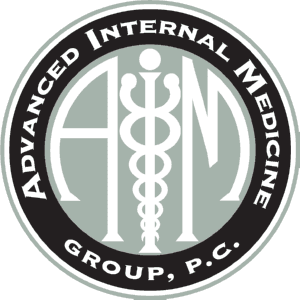In the contemporary hustle and bustle of life, stress has become an unwelcome companion that accompanies us all too often. The relentless expectations and burdens arising from work, relationships, and daily obligations can adversely impact our mental and physical health. Nonetheless, it is imperative to give precedence to self-care and embrace effective techniques for stress management and reduction. In the subsequent paragraphs, we will delve into five indispensable pointers to foster a harmonious and serene existence.
Stress And Its Impact On Your Body
The impact of stress on overall health can be profound. Whether stemming from work pressures, relationship difficulties, financial worries, or other factors, stress triggers the release of stress hormones like cortisol and adrenaline. While these hormones can be beneficial in short bursts, prolonged or excessive stress can detrimentally affect various aspects of our well-being. Here are several ways in which stress can impact our health:
1. Mental Health: Extended periods of stress can contribute to the development or worsening of mental health conditions such as anxiety and depression. It can lead to persistent feelings of apprehension, irritability, and overwhelm. Chronic stress may also impair concentration, memory, and decision-making abilities.
2. Cardiovascular System: Stress significantly affects the cardiovascular system. It can cause an increase in heart rate, elevated blood pressure, and the release of stress hormones, thereby contributing to the development of hypertension (high blood pressure) and raising the risk of heart disease, heart attacks, and strokes.
3. Immune Function: Stress weakens the immune system, rendering individuals more vulnerable to infections, viruses, and diseases. Prolonged stress can hinder the body’s ability to combat illnesses, resulting in more frequent colds, flu, and other infections.
4. Digestive System: Stress disrupts the normal functioning of the digestive system, leading to symptoms such as stomachaches, indigestion, acid reflux, and changes in appetite. Chronic stress has been linked to gastrointestinal conditions like irritable bowel syndrome (IBS) and inflammatory bowel disease (IBD).
5. Sleep Disorders: Stress interferes with sleep patterns and contributes to the development of sleep disorders such as insomnia. Difficulties in falling asleep, staying asleep, or experiencing restful sleep can further intensify stress levels, creating a cycle of sleep deprivation and increased stress.
6. Weight and Eating Habits: Stress influences eating behaviors, potentially leading to overeating or unhealthy food choices. Some individuals resort to “stress eating,” seeking comfort in high-calorie foods as a coping mechanism. Over time, these habits can contribute to weight gain, obesity, and related health issues.
7. Skin Conditions: Stress can manifest on the skin, exacerbating existing skin conditions such as acne, eczema, psoriasis, and rosacea. It can also impede the healing process and render the skin more susceptible to inflammation and infection.
5 Ways To Reduce Stress In Your Life
1. Embrace Mindfulness and Meditation: Incorporating mindfulness and meditation practices into your routine can cultivate a sense of calm amidst life’s chaos. By focusing on the present moment and observing your thoughts without judgment, you can alleviate anxiety and stress. Dedicate a few minutes each day to meditation or mindfulness exercises. Find a quiet space, sit comfortably, and pay attention to your breath or engage in guided meditations. Over time, these practices can rewire your brain, promoting a more relaxed and centered state of mind.
2. Prioritize Self-Care: Making self-care a non-negotiable part of your daily life is crucial. Engage in activities that bring you joy and help you unwind. It could be reading a book, taking a soothing bath, practicing yoga, or spending quality time with loved ones. Additionally, ensure you prioritize adequate sleep, nourishing foods, and regular exercise. Prioritizing self-care not only boosts overall well-being but also provides the resilience needed to tackle stressful situations.
3. Streamline Your Schedule: Stress often stems from an overwhelming schedule filled with numerous commitments. Take a step back and evaluate your priorities. Learn to say no to non-essential tasks or delegate responsibilities when possible. By simplifying your schedule, you create space for relaxation and allow yourself to focus on what truly matters. Prioritizing tasks and setting realistic goals will enable you to manage your time more effectively, reducing stress and enhancing productivity.
4. Cultivate a Supportive Network: Building a strong support system is vital during stressful times. Surround yourself with positive and understanding individuals who uplift and encourage you. Share your thoughts and feelings with trusted friends, family members, or consider joining a support group. Sometimes, simply discussing your concerns can provide relief and perspective. Remember, you don’t have to face stress alone. Reach out for support when needed, and be there for others in return.
5. Engage in Stress-Relieving Activities: Discovering healthy outlets to release stress is essential. Engage in activities that help you unwind and relax. Explore hobbies like painting, playing a musical instrument, gardening, or journaling. Physical exercise is also an excellent way to relieve stress as it releases endorphins, the body’s natural mood boosters. Experiment with different forms of exercise, such as walking, dancing, or yoga, to find what works best for you. Regularly incorporating these stress-relieving activities into your routine will provide a much-needed respite from daily pressures.
AIM Group Offers Primary Care & House Calls In East Hills, NY
At Advanced Internal Medical Group in East Hills, NY we have 40 years of experience minimizing pain with over 20 services in primary care, house call appointments, and other services related to arthritis. To learn more about any of our services, call 516-352-8100 to speak with one of our team members.

